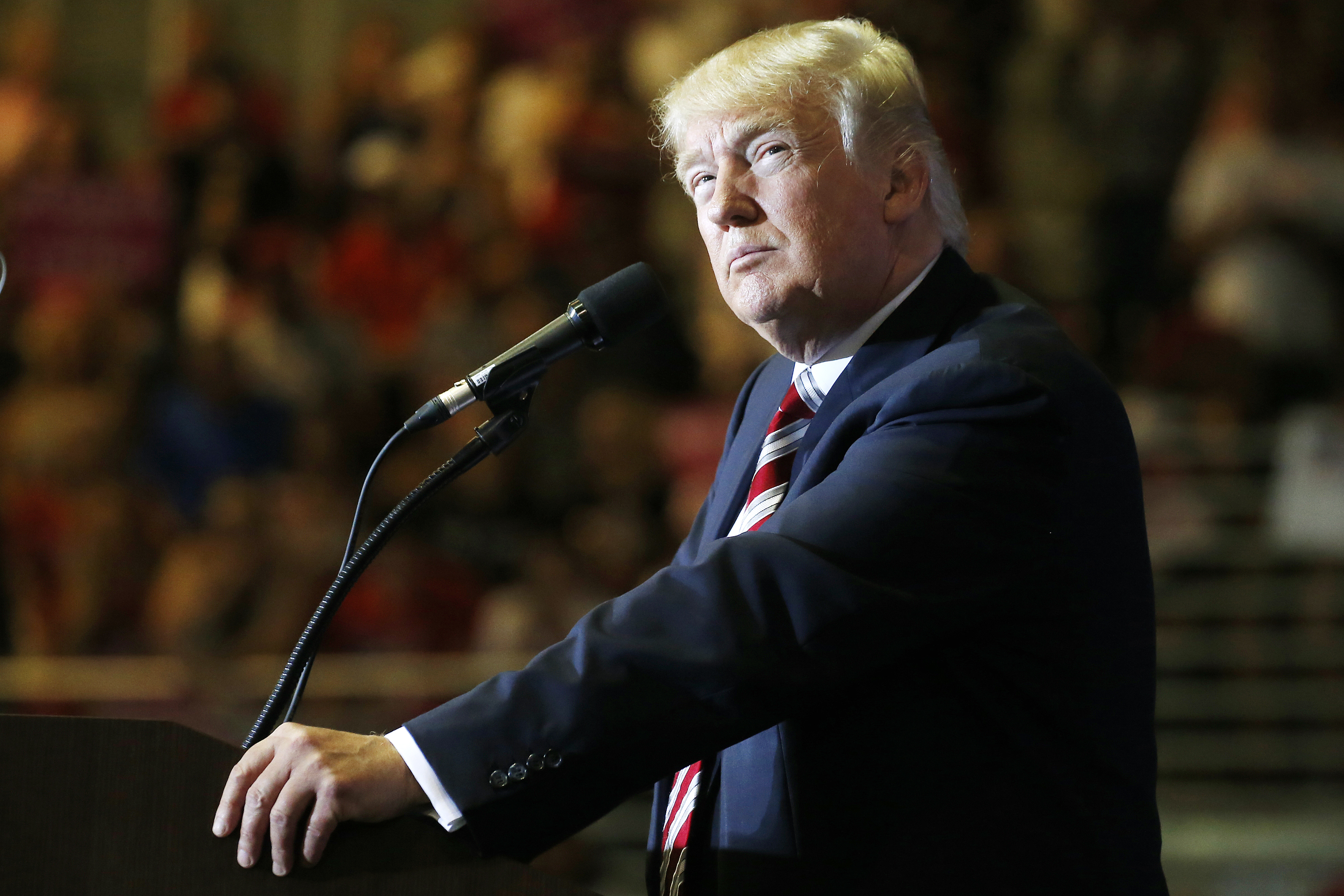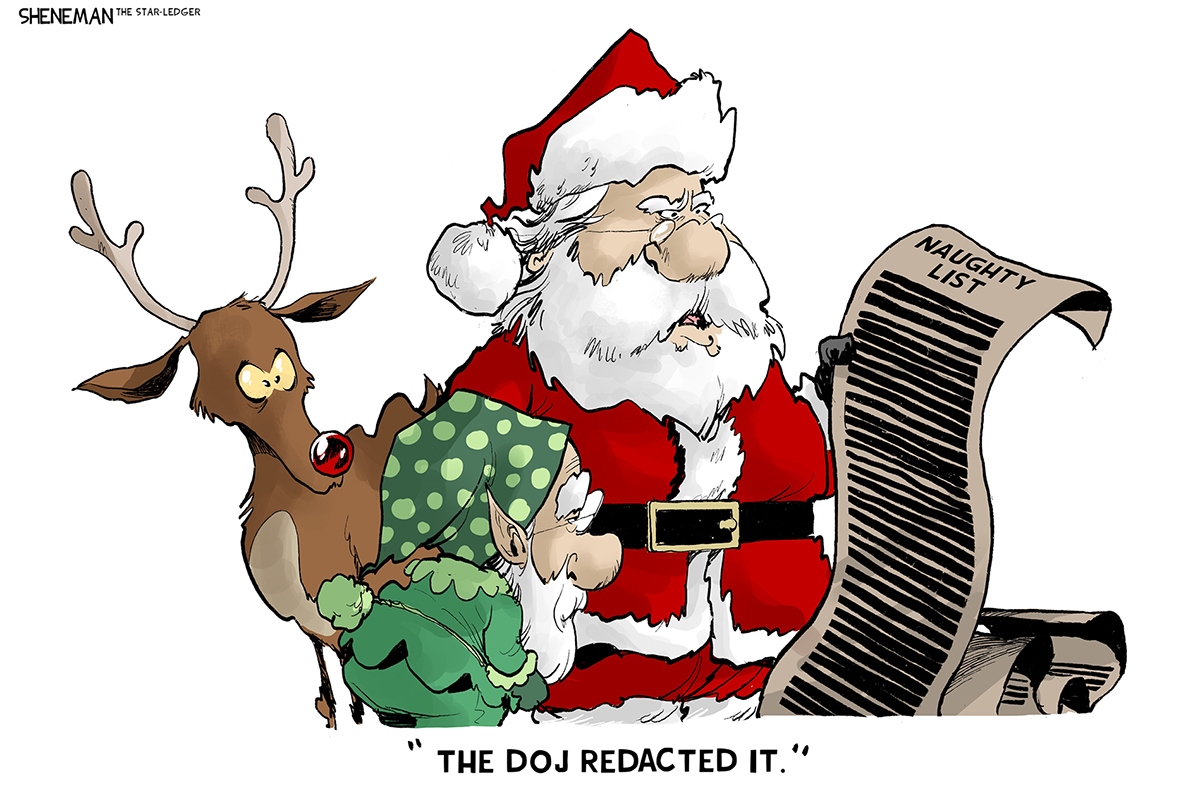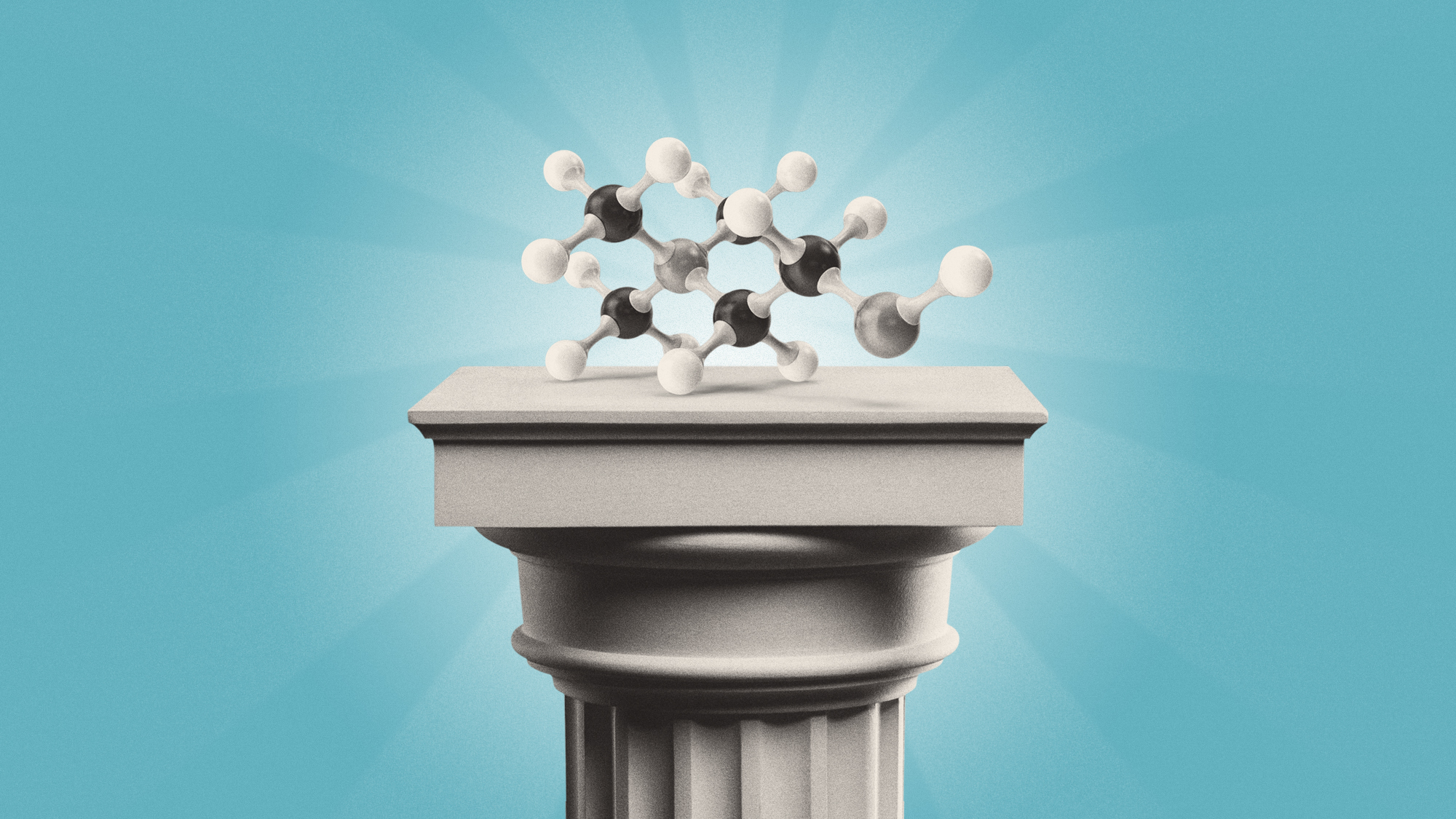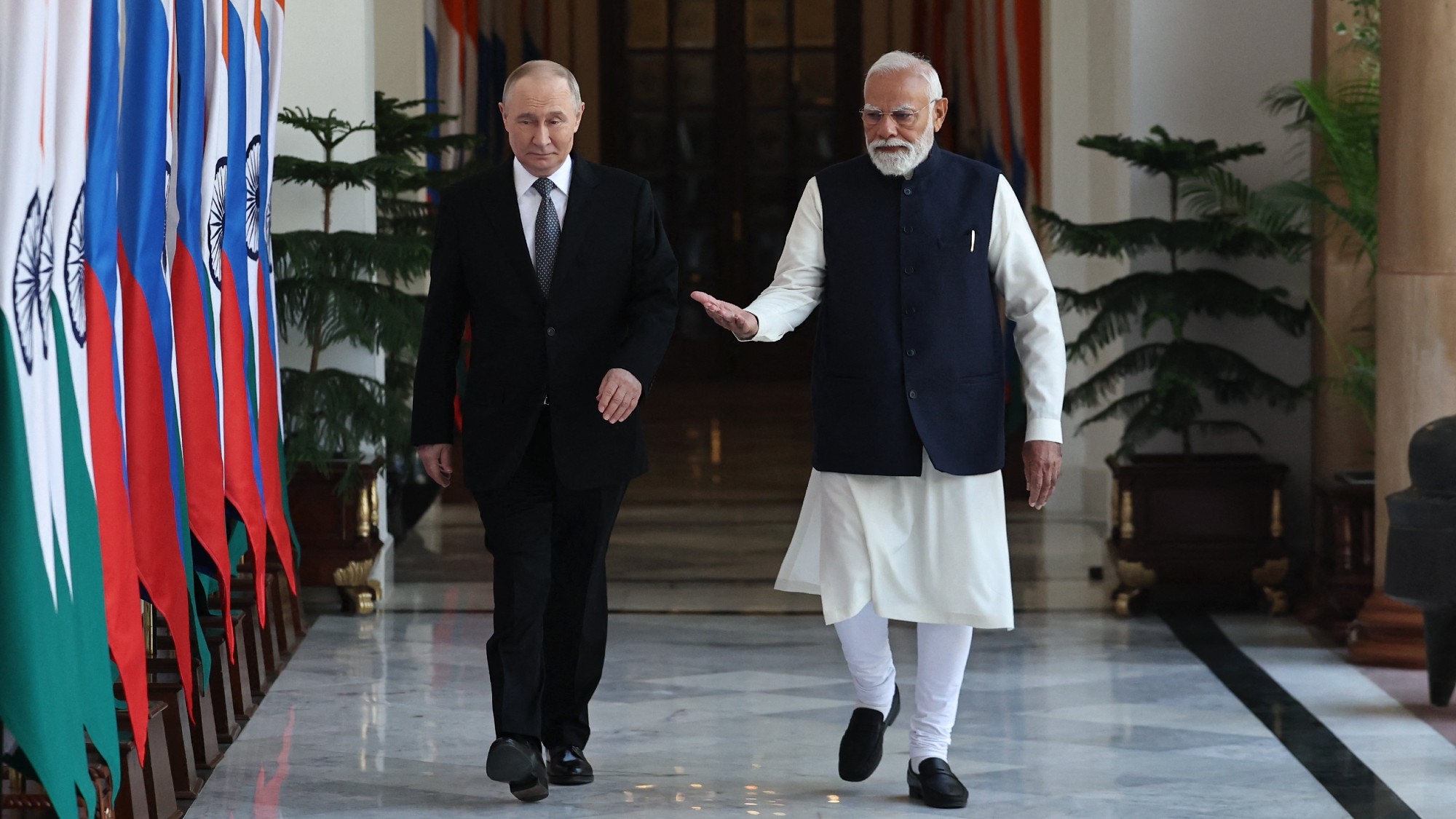What Trump has wrought
America has passed through the looking glass. And it is terrifying.


American political culture has passed through a looking glass and into an alternative universe where truth, lies, facts, rumors, and raw power blend into a messy and suffocating swirl of total disorientation.
Consider the astonishing (and highly dubious) "kompromat" dossier published by BuzzFeed. And the fact that the document was apparently leaked by unelected bureaucrats at the CIA as a form of extra-democratic retribution against the president-elect of the United States. And that media companies published the dossier's salacious details without verifying whether any of the raw intelligence it contained was true. And that Trump denounced the leak, dismissed its contents, and directly attacked CNN and BuzzFeed at a press conference that included a chorus of clapping sycophants.
This is all extraordinary. And Americans should be extremely worried about it.
The Week
Escape your echo chamber. Get the facts behind the news, plus analysis from multiple perspectives.

Sign up for The Week's Free Newsletters
From our morning news briefing to a weekly Good News Newsletter, get the best of The Week delivered directly to your inbox.
From our morning news briefing to a weekly Good News Newsletter, get the best of The Week delivered directly to your inbox.
Decades ago, the prophets of postmodernism proclaimed we were entering a radically destabilized world in which everything seemingly solid was dissolving into a miasma of unverifiable assertions. Facts, reality, truth — everything would be contestable, up for grabs, a matter of dispute. The authority of gatekeepers and of every other institution would be pulverized, with human relations flattened out. It would be a world without trust. And a world without trust would be a place in which every man and woman would be left alone to grope around in a pitch-black epistemological night, with not just beauty, but also truth, residing in the eye of every individual beholder.
When such ideas began to have influence in the United States, the claims seemed fanciful. It was the mid-20th century — the heyday of the Cold War with its clash of holistic ideologies that lent a remarkable degree of form and coherence to politics both at home and across wide swaths of the world.
But times have changed. The world prophesied by the postmodernists has arrived. And the terrifying truth is that it's deeply uncertain whether liberal democratic politics (or really, limited government of any kind) is possible within it.
There's a very good reason why the free press has come to be referred to as the fourth branch of government. While the three branches outlined in the Constitution are supposed to check each other's ambitions, the press plays the informal but crucial role of checking all three branches. In reporting on and investigating the government's actions and plans, and then publicizing this information, journalists keep citizens in a state of informed deliberation about whether and when to exercise the ultimate check on the power of the state: a vote to remove those in elective office.
A free daily email with the biggest news stories of the day – and the best features from TheWeek.com
We shouldn't romanticize this process. It rarely works as well as we might hope. Journalists, like all human beings, have blind spots and biases. Citizens, even in the best of times, are often busy, distracted, apathetic, incurious, and even blatantly ignorant about what government does and should do. All kinds of countervailing influences in the culture and economy — not to mention cutting-edge technological trends and good old-fashioned political corruption — can and often do amplify these shortcomings in a multitude of ways.
But through the best and worst of civic times, the country could always take for granted that the work of the press could proceed against a backdrop of given, stable, and nearly universally accepted facts and truths about the world, the country, and the public figures who held elective office.
It is precisely this stable backdrop that is disintegrating before our eyes.
It was sparked by anger about liberal bias in the mainstream media, which right-wing outlets and politicians stoked and hyped for the sake of ratings and political advantage. It was intensified by the proliferation of alternative sources of news with much lower journalistic standards, and more recently by fake news sites that publish outright fabrications as truth. It's made worse by both the economic imperatives at play in modern journalism and the accompanying pressure of competition in the 24-hour-a-day online news cycle.
All of it contributes to the shredding of social trust.
But of course, it is the ascension to the presidency of the shameless, serial liar Donald Trump that has finally pushed American public life off the cliff into outright chaos.
The contrast to Richard Nixon and the Watergate scandal is illuminating. Nixon was forced to resign the presidency because he was caught in a web of corruption and a tangle of lies. But Nixon only got caught and faced politically fatal consequences for his actions because his corruption and lies were visible against a backdrop of facts and truths that just about everybody from both political parties assumed and took for granted — and because Nixon himself yielded before these facts and truths.
Now imagine Trump in Nixon's shoes. He would begin by flagrantly attacking Bob Woodward and Carl Bernstein immediately after their very first story runs in The Washington Post. Soon the attacks would extend to the paper as a whole and any media outlet that runs summaries of the Post's investigations or tries to follow up on aspects of the story. Within days, the relentless barrage of abuse on Twitter and in press conferences from the president himself would mushroom into dozens of stories a day on Fox News, Breitbart, talk radio shows, and countless websites. Charges, counter-charges, and conspiracy theories would fly in every direction. And every day, the president would deny everything, calling it a witch hunt, a left-wing hatchet job run behind the scenes by members of the Democratic leadership, each one of whom receives an insulting nickname that the president uses to mock them. Soon the nicknames would be everywhere online, used for fun even by journalists critical of Trump.
Even if we assume (implausibly) that the investigation of the president would continue in the midst of this circus, is it even remotely realistic to assume that the revelations contained in the string of stories could gain political traction? Trump would only face danger if Republicans in the House of Representatives turned on him, but they would never turn on him with the Republican electorate calling the stories (on the basis of no evidence whatsoever) thoroughgoing nonsense orchestrated by the president's political enemies.
In this Trump-as-Nixon scenario, there would be no serious threat of impeachment, and therefore no resignation. The storm would eventually pass, succeeded or merely drowned out by the next one, or by the half-dozen simultaneous (and much less serious) mini-scandals drummed up by the right-wing media to add to the chaos of distraction. The series of stories in the Post would still be read closely by outraged Democrats. The newspaper would still win its Pulitzer Prize (mocked by the president as a "liberal-media booby prize for talentless hacks"). But the "scandal" would have no significant political impact.
Now consider a more recent, real-world example.
When Republicans began the 115th Congress by moving to gut the House Ethics Committee and then swiftly reversed course after an uproar ensued, some in the press saw it as a sign that things haven't gone completely haywire. Political gravity still abides. A blatant power grab can still blow up in the faces of lawmakers. Even the president-elect took a stand, on Twitter of course, against the move.
But Trump's criticism had a revealing focus. He didn't accuse the House Republicans of corruption — or of acting to make it more difficult to investigate future corruption. He objected, rather, to the timing: Why did lawmakers make weakening the ethics watchdog, "as unfair as it may be," their "number one act and priority"? The implication was that the Republicans should have waited for some other time, when the change might not have garnered so much attention. Perhaps when the media had been busy covering a range of other stories; maybe when some diversions could have been arranged.
The first and most crucial test of how far we've fallen down the postmodern rabbit hole may well be reaction to the pending repeal of the Affordable Care Act, which (if passed without a comparable replacement) will lead millions of Americans (many of them Trump voters) to lose their health insurance. Normally one would expect this to produce a severe backlash against Republicans in general and the president in particular. Will it happen? Or can the party somehow persuade GOP voters, based on nothing more than factless assertion, that their pain is actually the fault of Democrats? And if that fails, will President Trump be able to insulate himself from the backlash by using media-induced chaos to convince voters to blame Democrats and Republicans in Congress?
If either happens, it will stand as ominous confirmation that we've fully crossed the threshold into a world of post-truth politics — a place lacking any true limits on the exercise of power.
Damon Linker is a senior correspondent at TheWeek.com. He is also a former contributing editor at The New Republic and the author of The Theocons and The Religious Test.
-
 Political cartoons for December 5
Political cartoons for December 5Cartoons Friday’s political cartoons include DOJ censorship, bombing the New York Times, and more
-
 Choline: the ‘under-appreciated’ nutrient
Choline: the ‘under-appreciated’ nutrientThe Explainer Studies link choline levels to accelerated ageing, anxiety, memory function and more
-
 Is a Putin-Modi love-in a worry for the rest of the world?
Is a Putin-Modi love-in a worry for the rest of the world?Today’s Big Question The Indian leader is walking a ‘tightrope’ between Russia and the United States
-
 Has Zohran Mamdani shown the Democrats how to win again?
Has Zohran Mamdani shown the Democrats how to win again?Today’s Big Question New York City mayoral election touted as victory for left-wing populists but moderate centrist wins elsewhere present more complex path for Democratic Party
-
 Millions turn out for anti-Trump ‘No Kings’ rallies
Millions turn out for anti-Trump ‘No Kings’ ralliesSpeed Read An estimated 7 million people participated, 2 million more than at the first ‘No Kings’ protest in June
-
 Ghislaine Maxwell: angling for a Trump pardon
Ghislaine Maxwell: angling for a Trump pardonTalking Point Convicted sex trafficker's testimony could shed new light on president's links to Jeffrey Epstein
-
 The last words and final moments of 40 presidents
The last words and final moments of 40 presidentsThe Explainer Some are eloquent quotes worthy of the holders of the highest office in the nation, and others... aren't
-
 The JFK files: the truth at last?
The JFK files: the truth at last?In The Spotlight More than 64,000 previously classified documents relating the 1963 assassination of John F. Kennedy have been released by the Trump administration
-
 'Seriously, not literally': how should the world take Donald Trump?
'Seriously, not literally': how should the world take Donald Trump?Today's big question White House rhetoric and reality look likely to become increasingly blurred
-
 Will Trump's 'madman' strategy pay off?
Will Trump's 'madman' strategy pay off?Today's Big Question Incoming US president likes to seem unpredictable but, this time round, world leaders could be wise to his playbook
-
 Democrats vs. Republicans: who are US billionaires backing?
Democrats vs. Republicans: who are US billionaires backing?The Explainer Younger tech titans join 'boys' club throwing money and support' behind President Trump, while older plutocrats quietly rebuke new administration
